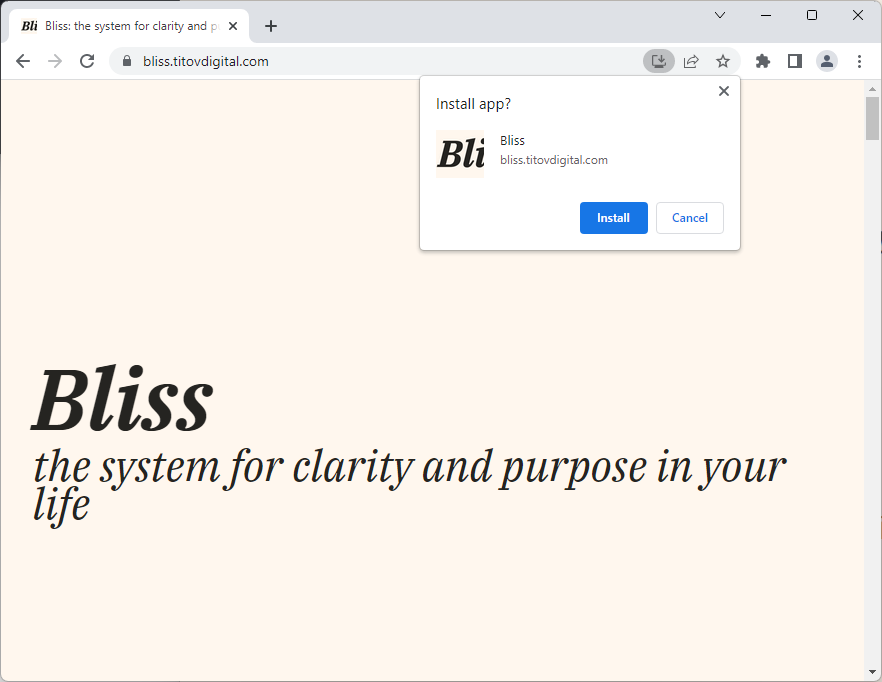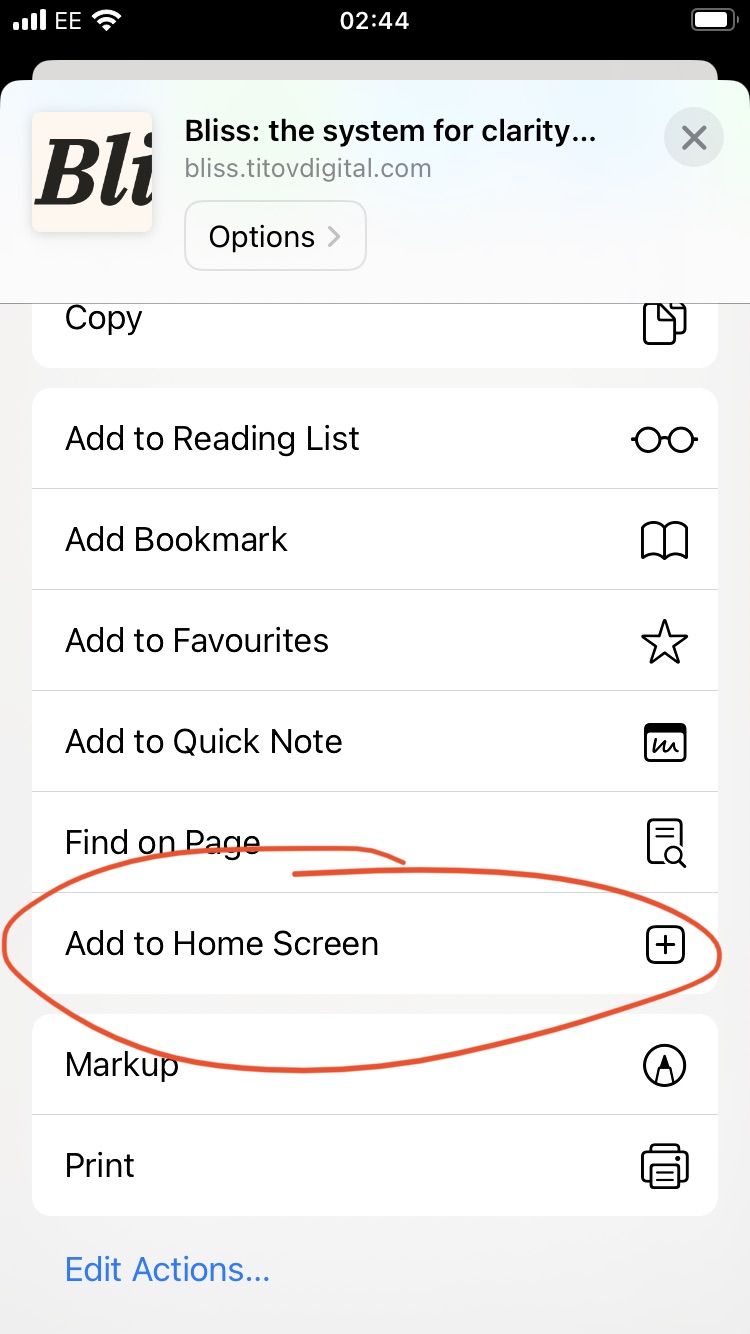The core of Bliss is the trusted system that keeps track of things that need to be done, hiding ones that don't require immediate attention.
Make a plan
Start with writing a wishlist. List all things you desire in life. Doesn't have to be realistic. Write down everything that comes to mind. If you feel stuck, keep going until you're absolutely sure that you've written down all possibilities. It helps to think in terms of timelines: what would you like to achieve in lifetime, in three years, in one year and in a few months.
Look at the list and identify a few things that would make the biggest impact on your life. If they require more than a few months to achieve, break them down into smaller steps. These steps are your projects: groups of tasks that lead to a specified result. The result of the project should be something that you do, rather than something that depends on external circumstances. “Get a new job” is a valid project. “Double income” is not.
Pick 3–4 most important ones between work and personal life. It's tempting to think you can do more. But it's a lot more efficient to focus. It also requires taking a hard look on your desires and deciding what you really want in your life.
Projects and Areas
Bliss app organizes all tasks between Projects and Areas.
Projects reflect life goals and require major commitment. A typical project may take anywhere from a few weeks to a few months. We strongly recommend to have no more than 3–4 max between work and personal life.
Areas are used to organize tasks that are not part of a project: they don't necessarily lead to a result but still have to be done. Typical areas are work routines, personal errands, health, etc.
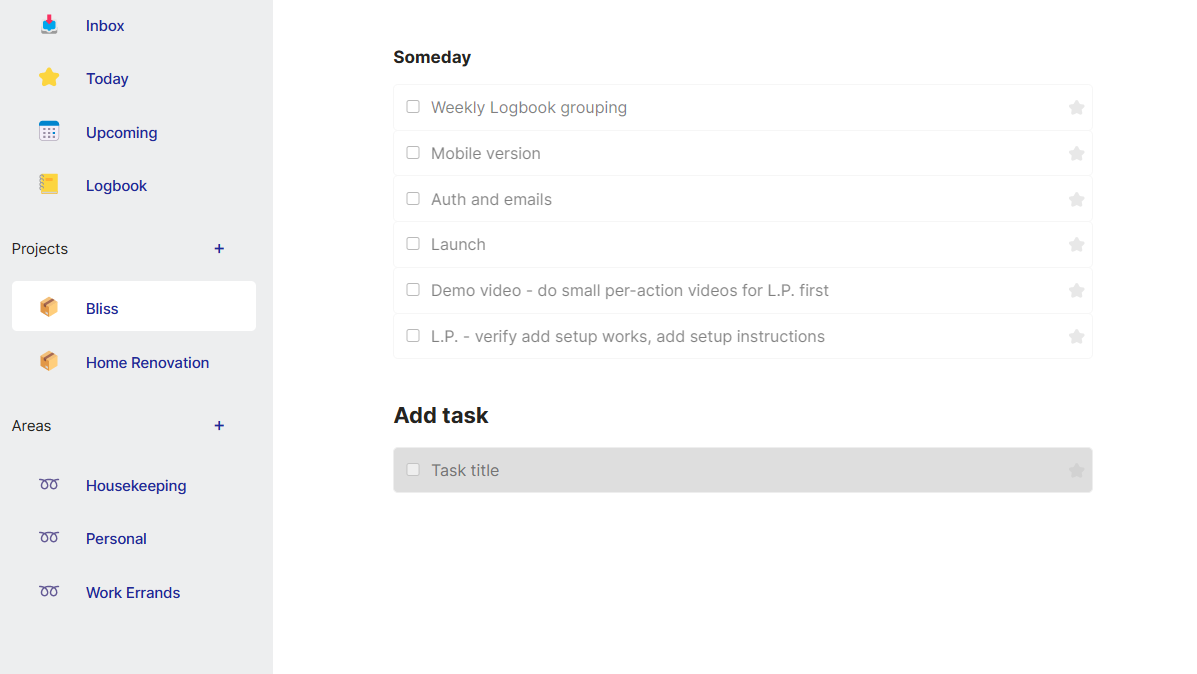
The process
The key to the Bliss is to offload all tasks from your mind to the system you trust.
Each task in Bliss is assigned to a Project or an Area and prioritized by the day it's scheduled for.
Empty your inbox. Review each email that requires attention and if it cannot be processed in two minutes—add it to Bliss. Capture all other pending tasks into Bliss app, regardless of where they are: in your mind, in task tracker, a physical item you've placed on your desk to make sure it isn't forgotten.
Note that scheduling in Bliss is fundamentally different from reminders or due dates. Scheduled date defines when the task should be included in daily review when you get to decide whether the task should be done today, postponed or, perhaps, infinitely postponed or deleted altogether.
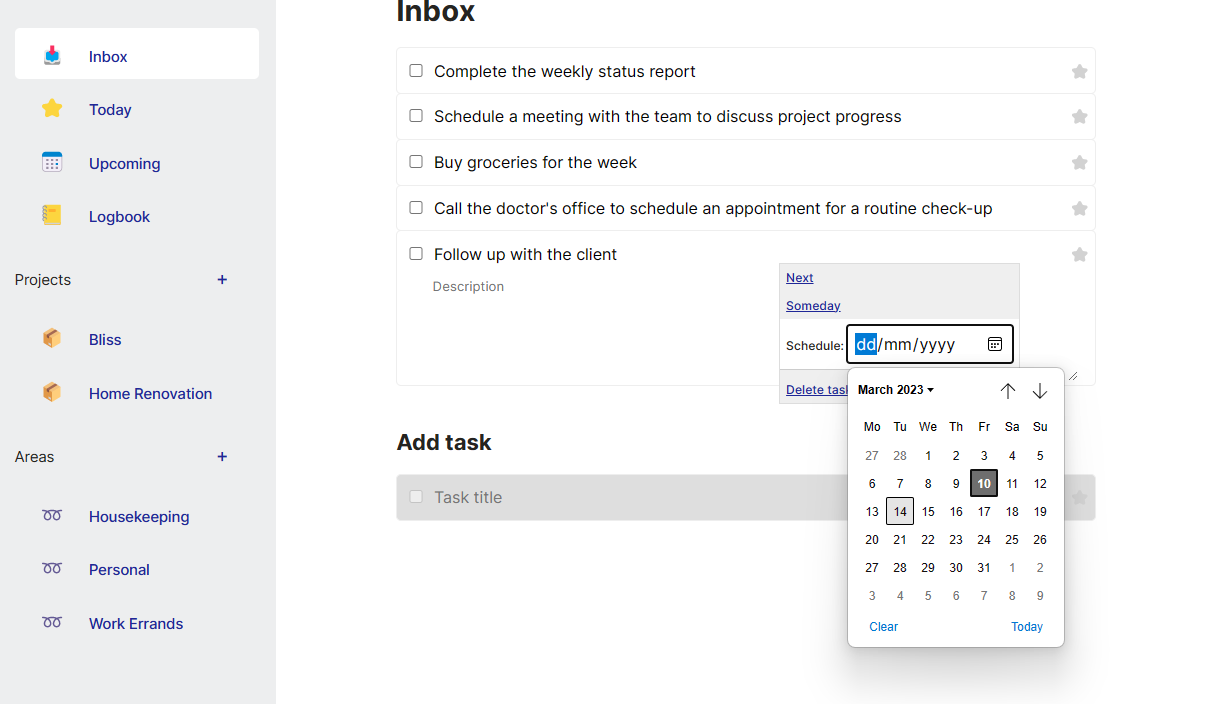
Enter routines and errands into respective Areas as well. If there are any repetitive tasks you'd like to do but not currently doing, schedule them for the date you'd like to start; once you do them, they can be rescheduled for the next planned date accordingly.
Daily review
Triage any new messages and tasks. If a task requires only a few minutes: go ahead and do it. Enter everything else into Bliss app. Add a task for any message and task that you're waiting an external input too, scheduling it for the date when you might want to follow it up.
Open Today screen and review the tasks scheduled for today. Either hit today button ⭐ or reschedule them to pop up at a later date. Only mark the tasks you're confident you'll be able to do today: you can always add more later if you have extra time.
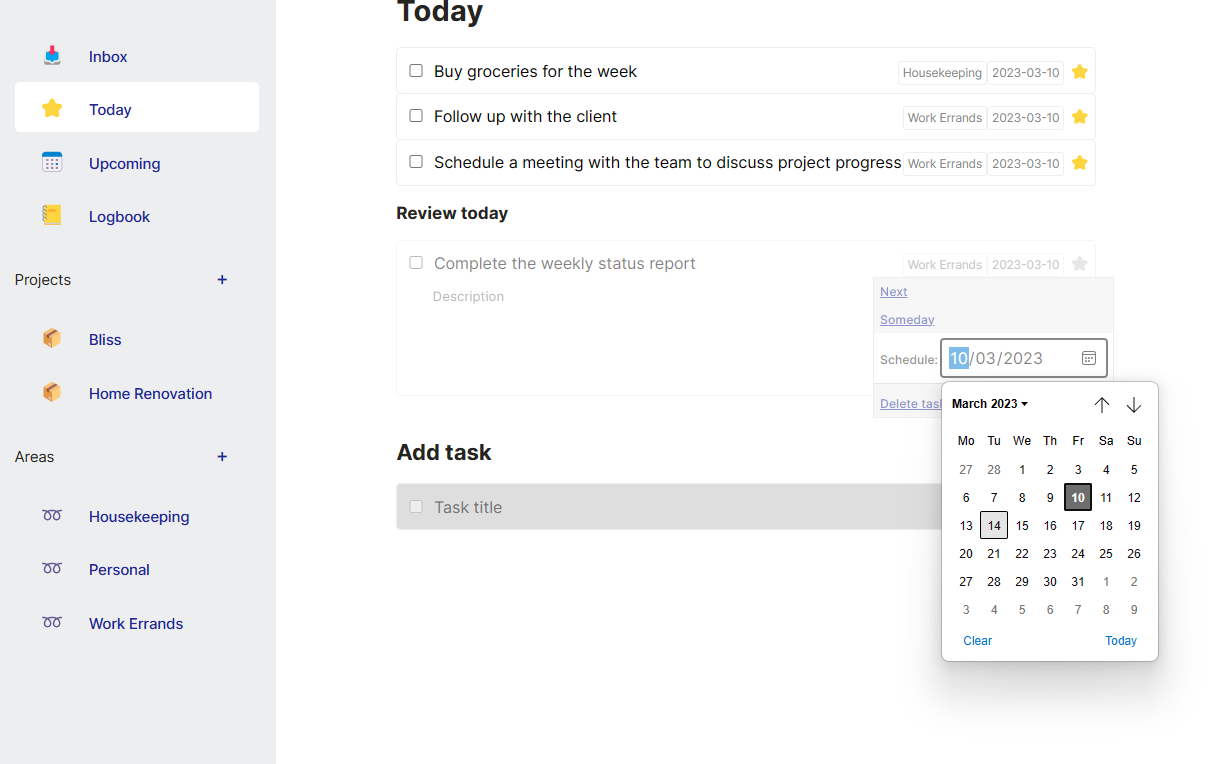
Once the day is planned, start from the most daunting task. Mark tasks as complete once you finish them.
Weekly review
Set aside one day per week to do top-down planning aside from daily treadmill.
Capture all pending actions from your head that don't necessarily show up at inbox. Think of any personal errands too. Are there housekeeping tasks that require attention? Are there proactive things at work you'd like to do you haven't thought before? Is there something that was't entered into Bliss app yet?
Review tasks that haven't been started in each active Project and Area. Anything that is scheduled to a date is probably fine, but do think if it still needs to be done or something has changed. Get rid of any tasks that are no longer applicable—learn when to say 'no'. Anything that has been repeatedly rescheduled or is remained marked Someday for some time needs attention. Think of the reasons why:
- Important, but not started. Is it too complex and should be broken up? Does it require external help and delegation? Is it too unpleasant—can you ask for outside help?
- Not committed to do it but not ready to delete.
- Lower priority than other tasks.
Review the Logbook 📒 and measure how far your checked items brought you towards your goals.
